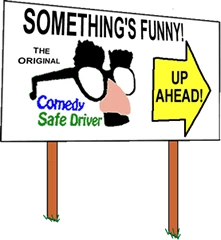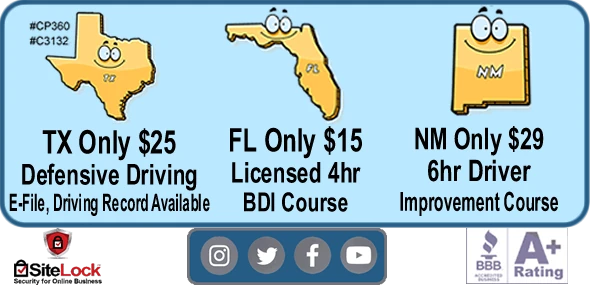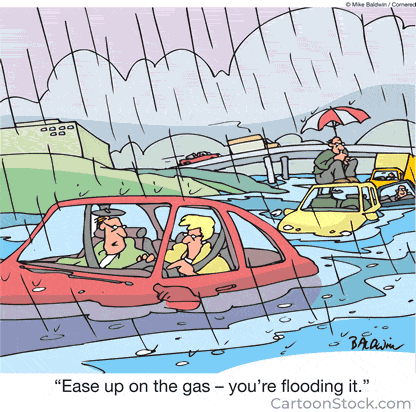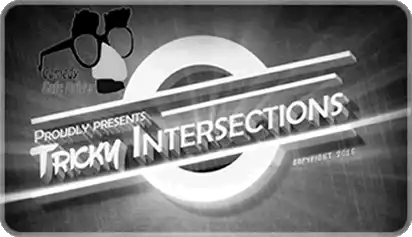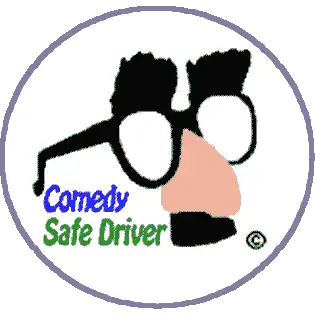
Psychological Class Defensive: Stay Safe With Comedy Safe Driver
Join the Comedy Safe Driver course and master the art of defensive driving while having fun!
Understanding the Psychological Class Defensive
The "Psychological Class Defensive" is designed to offer a comprehensive understanding of how our psychological states, particularly under the influence of substances like alcohol, can significantly affect our driving abilities. It targets various facets of this issue, creating awareness and promoting responsible driving behaviors.
Alcohol's Effects on the Mind: Alcohol, as a depressant, has significant effects on our cognitive processes and motor skills, both of which are critical for safe driving. We cover the specific ways in which alcohol impairs our ability to react quickly, judge distances, maintain concentration, and make sound decisions on the road.
Understanding Risk Perception: One of the psychological effects of alcohol is the alteration of risk perception. Consuming alcohol might lead people to underestimate the risks involved in certain behaviors, like driving under the influence. This class helps students understand this skewed perception and the real risks they're taking.
Defensive Driving Strategies: We provide strategies for defensive driving, teaching how to anticipate potential hazards, maintain safe distances, use mirrors effectively, and adopt safe braking techniques. Understanding these techniques can be a lifesaver, particularly when the driver is not under the influence but might encounter others who are.
Alcohol's Effect on Emotions and Behavior: Alcohol can influence emotions and behavior, leading to aggressive driving or road rage. This course examines these impacts and provides coping mechanisms to manage emotional triggers effectively while driving.
Education about DUI Laws and Consequences: Understanding the legal repercussions of driving under the influence (DUI) is also essential. This course covers local and national DUI laws, the consequences of a DUI conviction, and the long-term impacts it can have on your life and career.
Alternatives and Coping Strategies: The class will also discuss the various alternatives to driving while intoxicated, such as designated drivers, public transportation, rideshare apps, or simply choosing to stay the night somewhere safe. It will also provide strategies for resisting peer pressure to drink and drive.
By understanding these psychological aspects, our students can gain a better appreciation of the hazards associated with driving under the influence. It equips them with the knowledge and skills to make safer decisions, both for themselves and for the wider community.
Driving Skills Affected by Blood Alcohol Concentration
Drinking alcohol affects your ability to drive safely, significantly increasing the risk of road accidents. The impact on your driving skills is proportional to your blood alcohol concentration, with higher levels leading to greater impairment.
As alcohol enters your bloodstream, it affects your central nervous system, impairing your judgment, emotional control, memory and concentration, alertness, and attention - all essential for safe driving. The dangerous result is an increased likelihood of reckless driving and accidents.
Blood alcohol concentration (BAC) has a profound and progressive effect on one's ability to drive. Even at low levels, alcohol can affect numerous aspects of driving performance. Here's a detailed breakdown:
Low BAC Levels (0.01 - 0.04%): Low BAC levels, typically ranging from 0.01% to 0.04% (blood alcohol concentration), can have subtle but potentially dangerous effects on a person's ability to drive safely. While these levels may seem low, it's important to remember that even small impairments can significantly impact driving skills and increase the risk of accidents.
At this range, individuals may experience a mild impairment in visual functions, which are essential for safe driving. Alcohol can affect the eyes' ability to focus properly, leading to difficulties in tracking moving objects such as other vehicles or pedestrians. This impairment can result in decreased depth perception, reduced peripheral vision, and a diminished ability to accurately judge distances. As a result, drivers may have difficulty anticipating and reacting to potential hazards on the road.
Multitasking, an important skill while driving can also be affected. Alcohol at low BAC levels can disrupt a driver's ability to efficiently divide attention among various tasks. This can lead to difficulties in monitoring multiple sources of information simultaneously, such as keeping an eye on traffic signals, checking blind spots, and observing road signs. These impairments can slow down reaction times and hinder the ability to respond promptly to unexpected events on the road.
It's important to note that alcohol affects individuals differently, and factors such as tolerance, body weight, metabolism, and the presence of any other substances in the system can influence the level of impairment experienced. Additionally, even if a person feels relatively unaffected by low BAC levels, their judgment and decision-making abilities can still be compromised, potentially leading to risky behavior behind the wheel.
To ensure road safety, it is recommended to avoid driving altogether after consuming any amount of alcohol. The safest approach is always to designate a sober driver, use public transportation, or arrange alternative transportation options when alcohol has been consumed.
Moderate BAC Levels (0.05 - 0.07%): Moderate BAC levels, ranging from 0.05% to 0.07% (blood alcohol concentration), have a more pronounced impact on driving abilities compared to low BAC levels. At these levels, drivers experience noticeable impairments that can significantly affect their ability to operate a vehicle safely.
One of the key effects of moderate BAC levels is reduced coordination. Alcohol affects the central nervous system, which impairs fine motor skills and muscle control necessary for tasks such as steering, braking, and accelerating. As a result, drivers may have difficulty maintaining proper lane positions, making smooth turns, or responding effectively to unexpected road conditions.
Impaired judgment is another notable consequence of moderate BAC levels. Alcohol can affect decision-making abilities, leading to risky behaviors and poor choices while driving. Drivers may become more inclined to take unnecessary risks, such as running red lights, speeding, or following other vehicles too closely. This impaired judgment can increase the likelihood of accidents and make it difficult to accurately assess and respond to hazards on the road.
Slower reaction times are also characteristic of moderate BAC levels. Alcohol affects cognitive processing and the transmission of nerve impulses, leading to delayed responses to stimuli. Drivers may take longer to recognize and react to sudden changes in traffic, unexpected movements by pedestrians, or obstacles on the road. This delay in response time significantly increases the risk of collisions, as there is less time to avoid accidents or take evasive action.
Research has shown that the risk of being involved in a crash significantly increases even at these moderate BAC levels. The impairments in coordination, judgment, and reaction times make it more challenging for drivers to handle the demands of the road safely. It is important to note that legal BAC limits may vary by jurisdiction, and in many places, a BAC of 0.05% or higher is considered illegal while operating a vehicle.
To prioritize road safety, it is strongly recommended to avoid driving after consuming alcohol. Choosing alternative transportation options or relying on designated drivers is the best way to prevent accidents, protect lives, and comply with legal regulations.
Legal Limit BAC (0.08% in many countries): At this level, drivers are likely to experience poor muscle control, impaired perception, memory, and self-control. These impairments lead to a reduced ability to process information, poor speed control, increased reaction times, and impaired perception of obstacles.
High BAC Levels (0.15% and above): Beyond the legal limit, alcohol's effects become even more dangerous. Drivers may suffer from major loss of balance and control, potential blackouts, and a severe decrease in their ability to control the vehicle, respond to their surroundings, or even maintain consciousness. The risk of severe accidents, including fatal accidents, is exponentially higher at these levels.
It's important to note that individual responses to alcohol can vary, and even low levels of alcohol can impair some people's driving abilities more than others. Furthermore, combinations of alcohol with certain medications or drugs can exacerbate these effects.
Therefore, the safest choice is always to avoid drinking if you're going to be driving or to arrange alternative transportation if you've been drinking.
The "Psychological Class Defensive": Uncover the Psychological Effects of Alcohol
Alcohol can profoundly affect one's mental and emotional state, influencing behavior and decision-making capabilities, which can have a detrimental effect on driving skills. The "Psychological Class Defensive" explores these effects in detail. Here's a more thorough breakdown:
Emotional Effects: Alcohol can lower inhibitions and increase emotions such as aggression and hostility. This may lead to road rage, overconfidence, or reckless driving behavior that can put the driver and others at risk.
Cognitive Impairment: Even a small amount of alcohol can impair cognitive functions essential for safe driving, such as attention, decision-making, and memory. This can lead to an inability to react appropriately to changing traffic situations, forgetting directions or rules of the road, and making ill-judged decisions.
Impaired Perception: Alcohol can impair a driver's ability to perceive their surroundings accurately. It affects depth perception, peripheral vision, and the ability to judge speed and distance, all of which are critical for safe driving.
Delayed Reaction Times: Alcohol slows down the brain's processing speed, which can delay reaction times. This means drivers under the influence may not react quickly enough to avoid collisions or respond to changes in road and traffic conditions.
Risk-Taking and Impulsive Behavior: Alcohol can increase the likelihood of engaging in risky behavior, such as speeding, not wearing a seatbelt, or ignoring traffic signals. It can also make drivers more impulsive, leading to sudden and unsafe maneuvers.
Awareness and Recognition: The course will also teach you how to recognize these signs of impairment in others. This knowledge can help you avoid dangerous situations, such as getting into a car with a driver who has been drinking.
Prevention and Planning: Finally, the course focuses on prevention strategies, emphasizing the importance of planning ahead (designating a sober driver, arranging for a cab, or staying over at a friend's house) if you know you'll be drinking.
By understanding and recognizing these psychological effects of alcohol, participants in the "Psychological Class Defensive" are better equipped to make safer decisions and contribute to reducing alcohol-related accidents on the roads.
Why Choose the Comedy Safe Driver's Psychological Class Defensive
Our driving course isn't just informative; it's enjoyable too! We believe that learning should be fun, and our unique approach ensures you absorb and retain the critical information we provide. Join the Comedy Safe Driver course, and turn a typically dull subject into an enjoyable experience. Laugh, learn, and become a safer driver.

